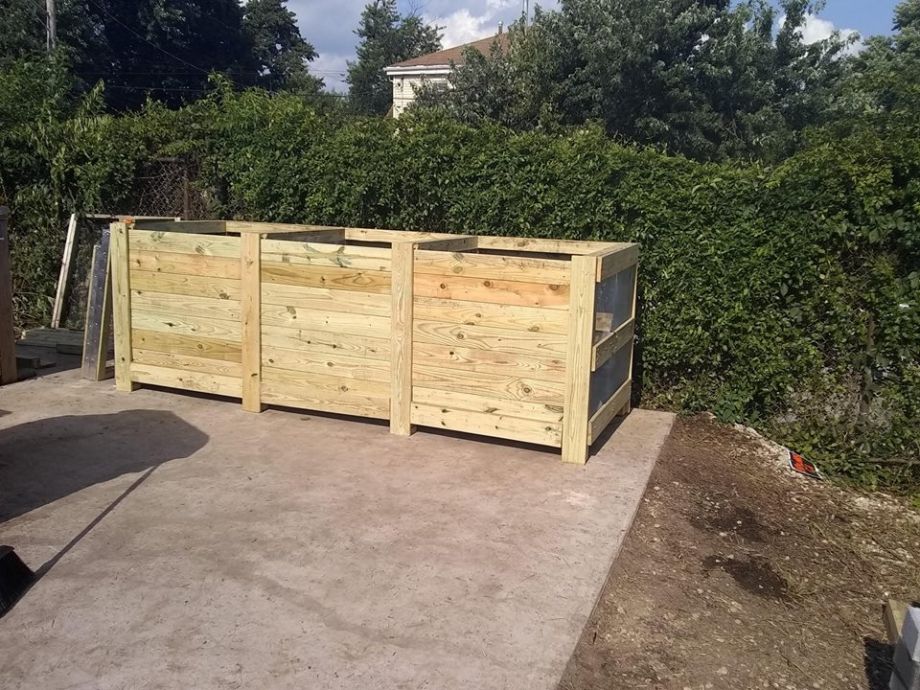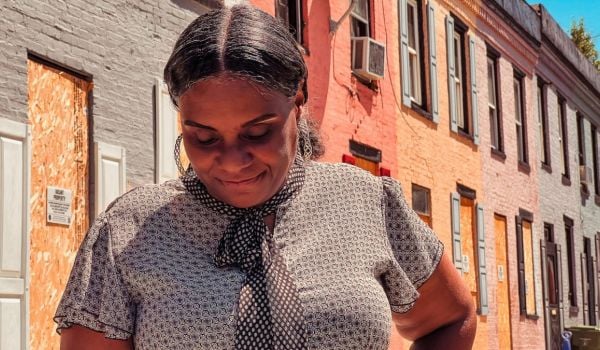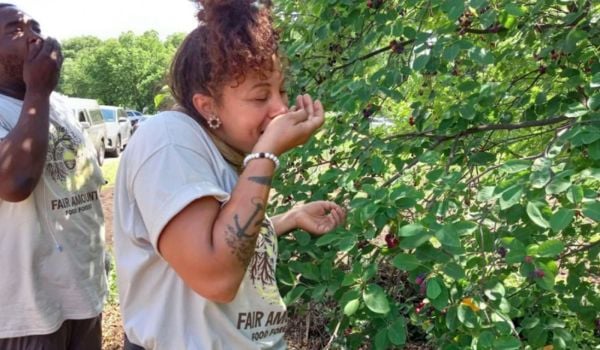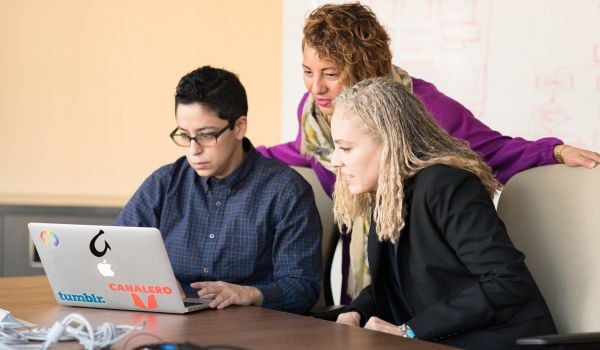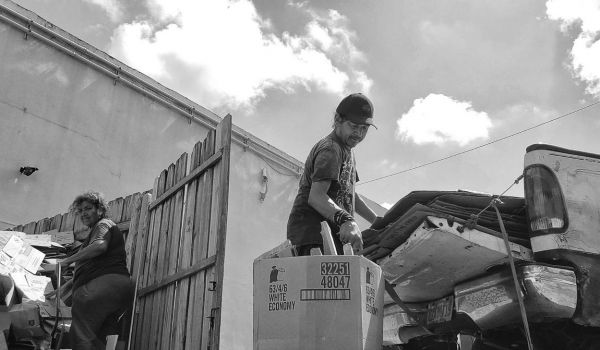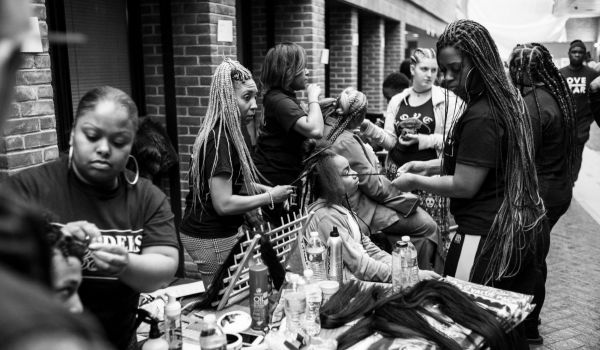Marvin Hayes tells a story about a time he was clinging to a tree for dear life, twenty feet above the ground during a ropes course at Outward Bound.
“I was terrified from heights. A young guy from Baltimore City, from Sandtown-Winchester. Never had really been out camping or rock anything like that,” says Hayes.
Hayes made it halfway but couldn’t get beyond that. So, he says, after about two hours, people helped him get down. The experience stuck with him though, and he made a deal with his school counselor that if he passed all his classes, the school would send him back to try the course again.
“That course turned into about five courses. I wind up getting an internship with Outward Bound, being a counselor,” Hayes recalls. He’s been working with youth ever since. In his latest endeavor, he’s been working with youth for the past year as part of the Baltimore Compost Collective to turn food scraps into “black gold” — compost.
“What’s so special about our program is an opportunity to work with youth to transform them and give them a skill,” says Hayes, who runs the compost collective and is the youth supervisor.
The Baltimore Compost Collective works by gathering food scraps from residences in Baltimore’s Curtis Bay, Federal Hill, Riverside Park, and Locust Point neighborhoods and composts the material at the Filbert Street Community Garden in Curtis Bay. It employs local teenagers and trains them in workforce skills, food access programming and community-scale composting. The compost they create gets used by the Filbert Street Community Garden to grow fresh produce. The collective was modeled on BK ROT, a Brooklyn, N.Y.-based composting service.
The Baltimore Compost Collective developed as a partnership between United Workers, a local community development and worker justice organization, and the Institute for Local Self-Reliance (ILSR), a national nonprofit organization that provides research and technical assistance.
“Our mission, essentially, is promoting a homegrown economy,” says Brenda Platt, ILSR’s co-director.
The group’s website says that it aims to keep political and economic power “as close to the people as possible, and ensuring that communities have the responsibility and authority to make the decisions that impact their lives.”
“In our ‘Composting for Community’ initiative,” Platt says, “our lens is how can we keep these community assets — food scraps, yard debris — circulating in the local economy?”
Often, Platt says, cities create infrastructure to remove compostable materials from the communities that generate them, transporting them to a large, centralized facility someplace far away. ILSR advocates a decentralized approach.
“We’re one of the only national groups really promoting a distributed infrastructure for food-waste recovery that supports community,” Platt says. As a result, the group has been advocating at the statewide policy level for solutions that can develop infrastructure to accommodate the local collection of organic waste such as food scraps.
The group also created a hierarchy diagram that aims to help people recognize what waste can be captured and re-used locally while building community. For example, human food scraps can be used to feed backyard chickens or composted for use in a garden.
The compost collective’s work has turned out to be particularly prescient. In early September, Baltimore was selected as one of two national pilot cities for a food waste reduction project launched by the National Resources Defense Council and the Rockefeller Foundation. The United States wastes an estimated 40 percent of its food each year; under the new project, the Baltimore pilot food waste reduction initiative aims to reduce commercial food waste by half while decreasing residential waste 80 percent by 2040.
The Baltimore Compost Collective work offers a tested model to help achieve that goal in Baltimore while also making progress on other fronts. Composting can enrich soil for food, and, according to ISLR, it can also reduce the pollutants in stormwater by 60-95 percent — an important consideration in Baltimore where storm runoff flows into the Chesapeake Bay. Not to mention the work opportunity, skills growth for youth and face time with mentors like Hayes.
Anthony Walton, 19, is one of the youth working with Hayes. The two met when Walton was 14, but he soon moved with his father to California. When he returned to Baltimore, he got into trouble and was sentenced to community service. He called Hayes, who shared the phone number for the executive director of the community organization where the two had met a few years earlier.
“A lot of people don’t get a second chance at all, so I knew I needed to take advantage of that,” Walton says.
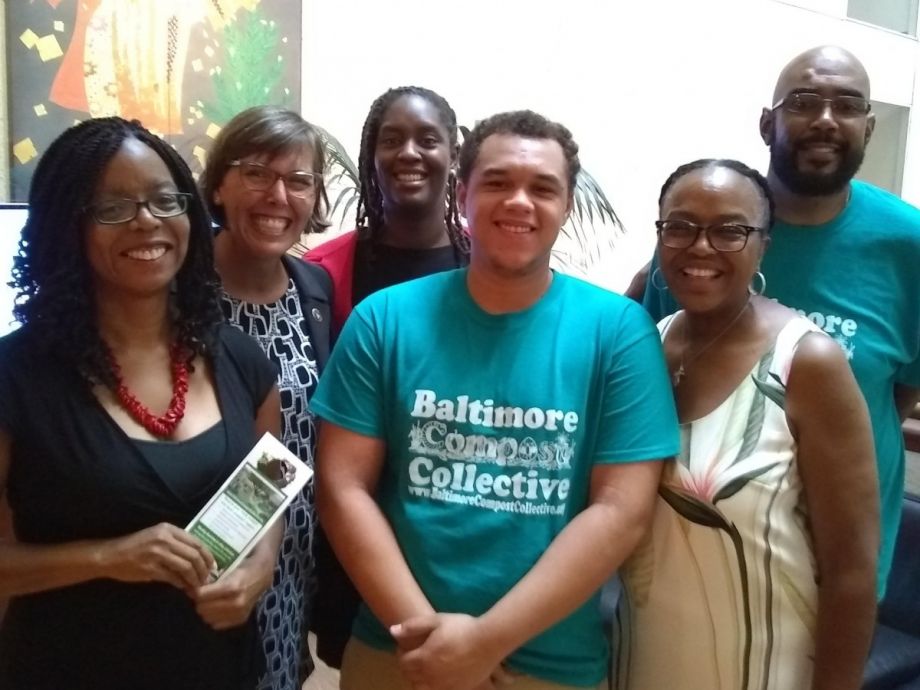
At a September 2018 event announcing the city's new food waste management initiative. Left to right: Delegate Robbyn Lewis for District 46, the district in which the Baltimore Compost Collective project is located; Holly Freishtat, food policy director, Baltimore City Department of Planning; Stephanie Maddin Smith, assistant director, Baltimore City Department of Planning; Anthony Walton; Rodette Jones, coordinator of Filbert Street Garden; and Marvin Hayes. (Credit: Institute for Local Self-Reliance)
Before he started with the Baltimore Compost Collective, Walton says he knew nothing about composting.
“I love to learn things, and I’m a very hands-on person, so I thought it’d be something I’d like to do,” he says.
The work, Walton says, has transformed him. “It’s crazy how Mr. Hayes always says ‘We don’t just save food, we save youth’, and that’s in a way what he did with me,” Walton says.
Walton says that chopping up materials for composting helps him to calm himself. “It’s changed the way I eat, too,” he adds. “I think of it as, ‘if it’s not compostable, why should I put it in my body?’”
“Composting has been very good to me,” says Walton, who now lives in a 2-bedroom house that he shares with his girlfriend and step-daughter.
Hayes aims for the program to impact many more people.
“These small-scale food scraps can turn into a large-scale operation and not only save the food scraps from going into the incinerators and to the landfills, but it can create opportunities for youth, for ex-offenders,” says Hayes. “It can create opportunities for anybody who wants to learn a skill with composting, agriculture and lead Baltimore, ultimately, towards zero waste.”

Zoe Sullivan is a multimedia journalist and visual artist with experience on the U.S. Gulf Coast, Argentina, Brazil, and Kenya. Her radio work has appeared on outlets such as BBC, Marketplace, Radio France International, Free Speech Radio News and DW. Her writing has appeared on outlets such as The Guardian, Al Jazeera America and The Crisis.
Follow Zoe .(JavaScript must be enabled to view this email address)

